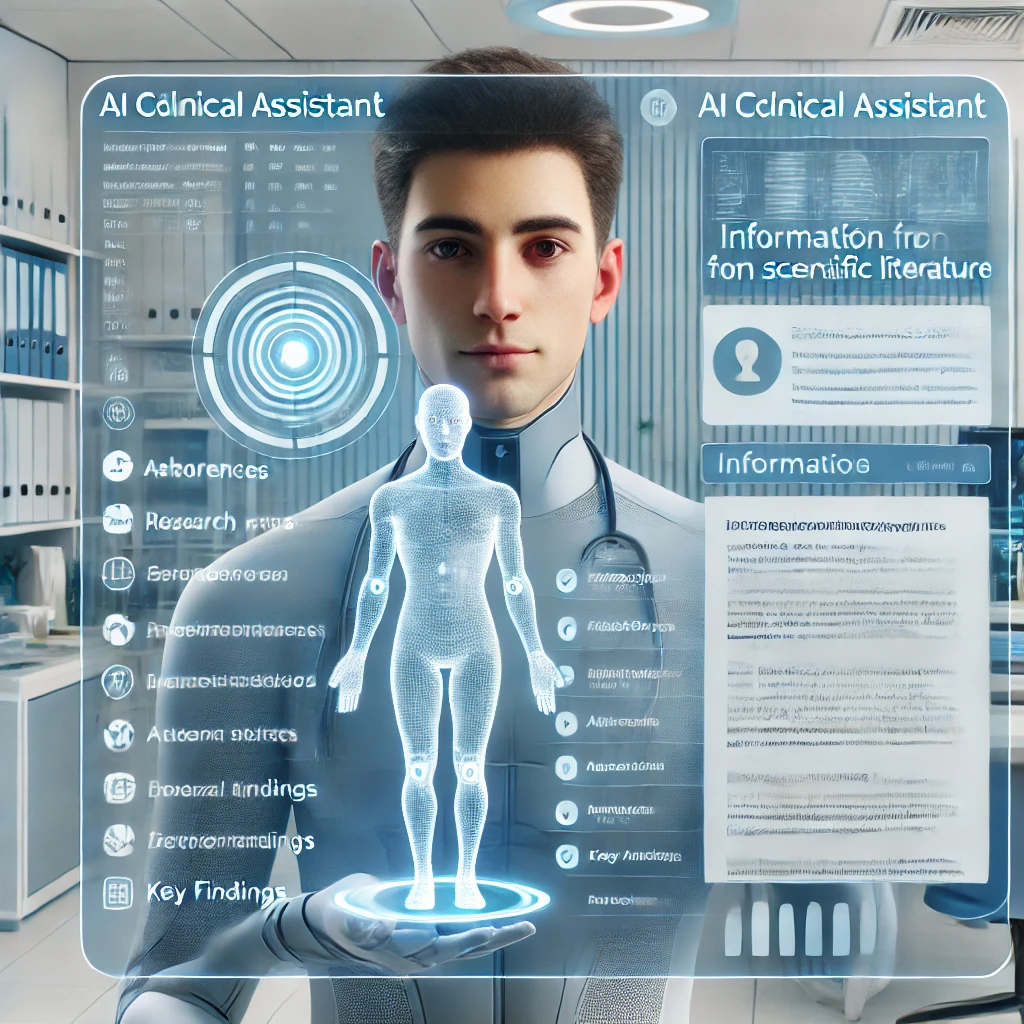The Role of Artificial Intelligence in Physiotherapy Practice: Introducing the AI Clinical Assistant

1. The Evolution of AI in Healthcare: The Rise of AI Clinical Assistants
AI has been making significant strides in healthcare, offering solutions that improve patient outcomes, streamline workflows, and enhance clinical decision-making. In physiotherapy, AI clinical assistants can analyze complex data sets, recognize patterns, and predict outcomes, providing valuable insights to clinicians. This capability is especially beneficial in a field that relies heavily on evidence-based practice and personalized care.
2. Enhancing Clinical Decision Making with AI Clinical Assistants
Clinical decision-making in physiotherapy often involves synthesizing information from various sources, including patient history, clinical guidelines, and recent research findings. An AI clinical assistant can assist in this process by:
- Data Analysis and Interpretation: AI algorithms can process large volumes of data quickly and accurately, identifying trends and correlations that may not be immediately apparent to clinicians. This includes analyzing patient records, imaging results, and clinical notes to provide a comprehensive view of a patient’s condition.
- Predictive Analytics: AI clinical assistants can predict patient outcomes based on historical data, helping clinicians anticipate complications and adjust treatment plans accordingly. For instance, machine learning models can predict the likelihood of recovery based on factors such as age, severity of the condition, comorbidities, and other prognostic factors.
- Personalized Treatment Recommendations: By analyzing data from similar cases, an AI clinical assistant can suggest personalized treatment options tailored to the individual needs of patients. This ensures that interventions are not only evidence-based but also customized to the unique characteristics of each patient.
3. AI Clinical Assistants in Rehabilitation Planning
Rehabilitation is a critical component of physiotherapy, requiring detailed planning and monitoring. AI clinical assistants can enhance rehabilitation planning by:
- Automating Assessment: AI-powered tools can assess a patient’s range of motion, strength, and functional abilities using sensors and video analysis. This objective data helps in accurately measuring progress and adjusting rehabilitation protocols as needed.
- Optimizing Exercise Programs: Based on the patient’s condition and progress, an AI clinical assistant can recommend specific exercises and modifications. It can also provide real-time feedback on exercise performance, ensuring that patients perform movements correctly and safely.
- Tracking and Adherence: AI systems can monitor patient adherence to rehabilitation programs and provide reminders and motivational prompts. This ensures that patients stay engaged and committed to their recovery plan.
4. Access to Evidence-Based Information with AI Clinical Assistants
Keeping up with the latest research and clinical guidelines is crucial for physiotherapists. AI clinical assistants can streamline this process by:
- Curating Relevant Research: AI algorithms can sift through vast amounts of medical literature to identify relevant studies and clinical guidelines. This helps clinicians stay updated on the latest evidence without spending excessive time on literature searches.
- Providing Contextual Insights: AI clinical assistants can provide summaries of research findings and highlight their implications for clinical practice. This contextualization helps clinicians understand how new evidence applies to their specific patient populations and practice settings.
- Linking to Educational Resources: AI clinical assistants can direct clinicians to relevant educational materials, including videos, courses, and articles, further supporting evidence-based practice.
5. Physiotutors and the Introduction of chatCPG: An Advanced AI Clinical Assistant
Physiotutors, a leading provider of physiotherapy education and resources, has been at the forefront of integrating AI into physiotherapy practice. Recognizing the potential of AI to transform the field, Physiotutors developed “chatCPG” – an AI clinical assistant designed to support physiotherapists in their daily practice.
What is chatCPG?
chatCPG stands for “chat Clinical Practice Guidelines.” It is an AI clinical assistant trained on a comprehensive database of recent clinical practice guidelines relevant to physiotherapy. The assistant provides answers to clinical questions based on these guidelines and offers links to relevant resources within the Physiotutors content library.

